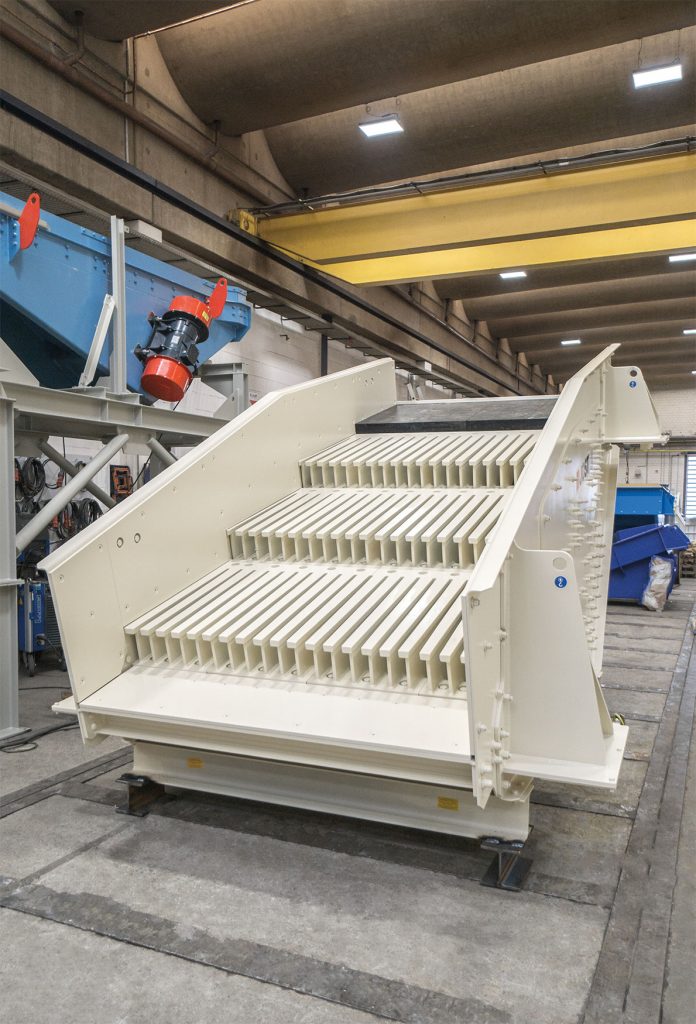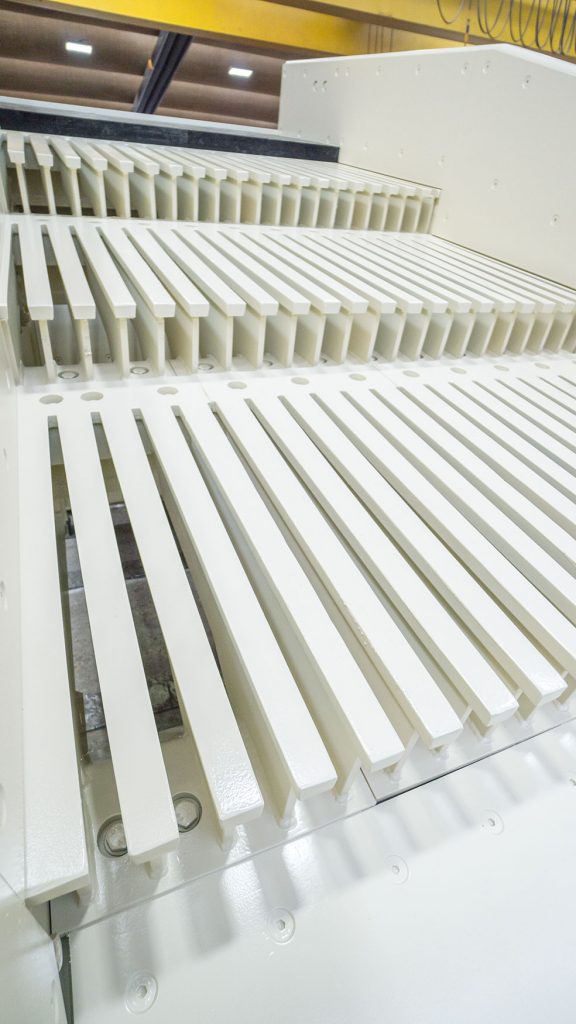PRIMARY RAW MATERIALS
Efficient screening of limestone

Austrian customer receives JOEST GRIZZLY screen
In March 2018, JOEST has delivered a heavy duty GRIZZLY screen for limestone to an Austrian customer.
The screen has a size of 1800 mm x 4000 mm and a capacity of up to 800 t/hr. The feeding material varies between 0-800 mm and has an edge length of up to 1200 mm. To absorb the enormous impact energy of the extreme grain size, JOEST used a 120 mm rubber in the feed tray as protection. For this machine, the proven exciter was used, which is perfect for heavy duty applications.
Limestone tends to stick and blind the screendeck. Even with these difficult product properties JOEST Grizzly screens shows its real performance. In principle, GRIZZLY screens are used as a primary separator for the coarse separation of material in front of jaw crushers.
This project proves again that JOEST is able to offer the right solution for every customer and application.

Weitere Beiträge
As part of the JOEST group, MOGENSEN has been a trusted provider of high-performance screening and sorting technologies for many years. The new website now showcases this expertise more clearly and with a modern touch.
On International Women’s Day, we celebrated the great women in our company who have made a significant contribution every day with their commitment, expertise and passion. Their efforts have been a driving force behind our success and an inspiration to us all.
JOEST South Africa was commissioned to manufacture and supply replacement vibrating feeders for a critical power generation facility. The new units are designed to replace equipment that had been in operation for over 20 years, ensuring the continued reliability and efficiency of the plant.
MOGENSEN joins China’s food security project as an official supplier, supporting the nation’s plans to strengthen domestic grain production capabilities. The appointment by COFCO, China’s largest state-owned agricultural company, includes the deployment of multiple precision screening systems for processing rice, wheat and soybeans, among other grains. This long-term initiative is in line with China’s new food security law, which went into effect on June 1, 2024.







